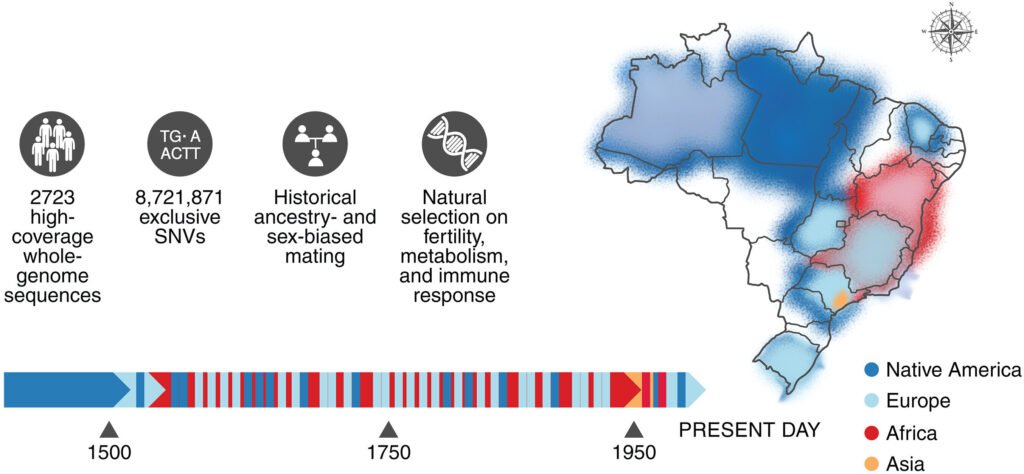The genome of the Brazilian population has been decoded for the first time in an international study published in the prestigious journal Science. This groundbreaking research, conducted by the Institute of Evolutionary Biology in Spain and the University of São Paulo, sheds light on the African, Native American, and European ancestries that make up Brazil’s diverse population, known for its high level of recent genetic admixture.
Since the sequencing of the human genome in 2003, scientists have been working tirelessly to unravel the genetic code that influences various aspects of human health and evolution. However, previous genetic studies have lacked ethnic diversity, limiting the potential benefits of genomic research for many populations.
The study produced a comprehensive genetic database comprising 2,723 complete genomes of individuals from urban, rural, and riverside communities across Brazil’s five geographical regions. This dataset revealed over 8 million previously unknown genetic variants, including those associated with health conditions such as heart disease, obesity, and infectious diseases like malaria and tuberculosis.
One of the key findings of the study was the impact of recent genetic admixture on the Brazilian population. The researchers identified genetic variants that have been favored by natural selection over the past 500 years of genetic mixing, leading to changes in fertility, immune response, and metabolism.
The ancestral backgrounds of the Brazilian population provide insights into the country’s complex demographic history. The study revealed asymmetrical mating patterns among native American and African populations in the early centuries of colonization, with a preference for intra-ethnic marriages in more recent generations.
Moreover, the genetic data highlighted the prevalence of certain pathogenic variants in the Brazilian population, particularly those with Native American and African ancestries. The study also attributed the founder effect to the high frequency of rare diseases with European origins, such as Machado-Joseph disease, in Brazil.
Overall, the genetic mapping of Brazil’s population not only has implications for public health research but also offers a glimpse into the country’s evolutionary history. By uncovering the genetic diversity of Brazil’s population, this study paves the way for future research aimed at improving healthcare outcomes and understanding the genetic underpinnings of human evolution.
The study, titled “Admixture’s impact on Brazilian population evolution and health,” is a significant contribution to the field of genomics and holds promise for further exploration of the genetic landscape of diverse populations around the world.


